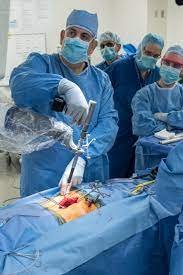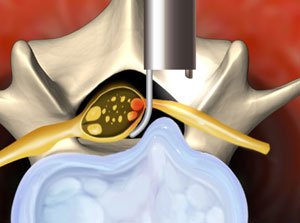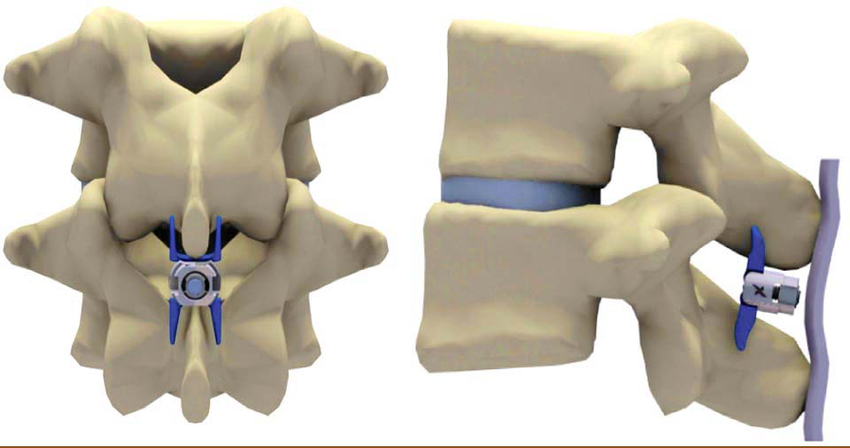Spine Surgeries

Spine surgery refers to surgical procedures performed on the spine to treat various conditions affecting the bones, discs, nerves, or other structures of the spine. It aims to alleviate pain, correct deformities, stabilize the spine, and improve overall spinal function.
Q: What is spine surgery?
A: Spine surgery refers to surgical procedures performed on the spine to treat various conditions affecting the bones, discs, nerves, or other structures of the spine. It aims to alleviate pain, correct deformities, stabilize the spine, and improve overall spinal function.
Q: What are the common conditions that may require spine surgery?
A: Common conditions that may require spine surgery include herniated discs, spinal stenosis, degenerative disc disease, spinal fractures, spinal tumors, spinal infections, and spinal instability.
Q: What are the different types of spine surgeries?
A: There are various types of spine surgeries, including discectomy (removal of a herniated disc), laminectomy (removal of part of the vertebral bone), spinal fusion (joining two or more vertebrae together), microdiscectomy (minimally invasive removal of a herniated disc), artificial disc replacement, vertebroplasty or kyphoplasty (treatments for vertebral compression fractures), and spinal decompression (relieving pressure on spinal nerves).
Q: How is spine surgery performed?
A: Spine surgery can be performed through different techniques, depending on the specific condition and the goals of the surgery. It may involve traditional open surgery, where a larger incision is made, or minimally invasive techniques, which involve smaller incisions and specialized instruments to access and treat the spine. Surgical approaches can vary, including anterior (front), posterior (back), or lateral (side) approaches.
Q: What are the potential risks and complications of spine surgery?
A: Spine surgery, like any surgical procedure, carries potential risks and complications. These may include infection, bleeding, blood clots, nerve damage, spinal fluid leakage, hardware failure, pain at the surgical site, poor wound healing, and in rare cases, paralysis. The risks and benefits should be discussed thoroughly with the surgeon before proceeding with surgery.
Q: What is the recovery process like after spine surgery?
A: The recovery process after spine surgery varies depending on the type of surgery performed, the extent of the procedure, and the individual's overall health. It often involves a period of rest, physical therapy, pain management, and adherence to post-operative guidelines provided by the surgeon. The recovery period can range from weeks to months, and sometimes longer for complex procedures.
Q: Will spine surgery completely eliminate pain or resolve all symptoms?
A: The extent of pain relief and symptom resolution after spine surgery varies depending on the specific condition, the goals of the surgery, and individual factors. While spine surgery aims to alleviate pain and improve function, complete elimination of pain or resolution of all symptoms may not always be achievable. It is important to have realistic expectations and communicate with the surgeon about the anticipated outcomes.
Q: Are there non-surgical alternatives to spine surgery?
A: In many cases, non-surgical alternatives are considered as the initial approach to managing spine-related conditions. Non-surgical treatments may include physical therapy, medication, pain management injections, spinal bracing, lifestyle modifications, and rehabilitation programs. However, if conservative treatments fail to provide adequate relief or if there are severe symptoms, surgery may be recommended.
Q: How long does it take to return to normal activities after spine surgery?
A: The timeline for returning to normal activities after spine surgery varies depending on the specific procedure, the individual's healing process, and the surgeon's guidance. While some patients may be able to resume light activities within a few weeks, others may require several months before gradually returning to more strenuous activities. The surgeon will provide specific instructions and guidelines for activity progression during the recovery period.
Q: Are there any new advancements or technologies in spine surgery?
A: Yes, there have been advancements and innovations in spine surgery. These include the development of minimally invasive techniques, robotic-assisted surgery, computer navigation systems, and the use of biologics or regenerative therapies. These advancements aim to improve surgical precision, minimize tissue damage, reduce complications, and enhance patient outcomes. However, not all new techniques may be suitable for every patient, and the best approach will be determined based on individual circumstances.





